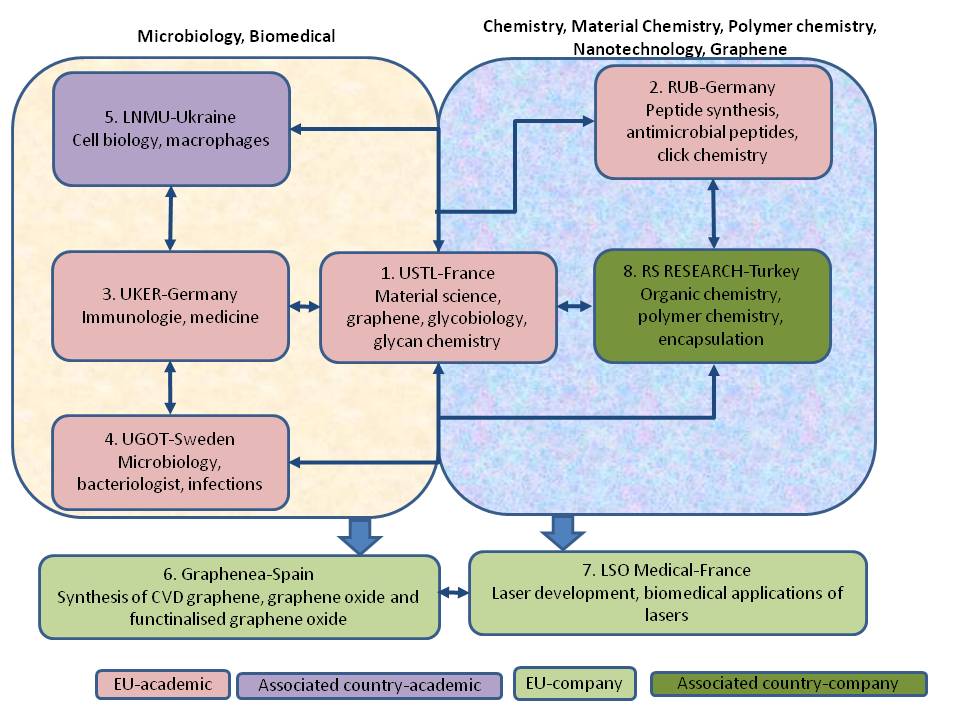The PANG project deals with the development of graphene-based nanocomposites and film for the eradication of pathogens notably in wound infections.
Complications related to infectious diseases have significantly reduced, particularly in the developed countries, due to the availability and use of broad-range antibiotics and wide variety of antimicrobial agents. Excessive use of antibiotics and antimicrobial agents increased significantly the number of multi-drug resistant (MDR) bacteria. This has resulted in a serious threat to public health. The inexorable rise in the incidence of antibiotic resistance in bacterial pathogens, coupled with the low rate of emergence of new clinically useful antibiotics, has refocused attention on finding alternatives to overcome antimicrobial resistance. Novel strategies aiming to reduce the amount of antibiotics, but able to prevent and treat animal and human infections should be investigated, evidenced and approved. Among the various approaches, the use of graphene and its derivatives is currently considered a highly promising strategy to overcome microbial drug resistance. The development of graphene-based analytical tools such a graphene–base surface plasmon resonance (G-SPR) will in addition allow to gain a better understand of the several factors controlling pathogen attachment to surfaces These different issues are addressed in the PANG project by a multi-sectoral and interdisciplinary approach by bringing research centers and companies from France, Germany, Sweden, Ukraine and Turkey.
 This project has received funding from the European Union's Horizon 2020 Research and Innovation Staff Exchange (RISE)
This project has received funding from the European Union's Horizon 2020 Research and Innovation Staff Exchange (RISE)
Marie Skłodowska-Curie Actions under grant agreement No 690836.


